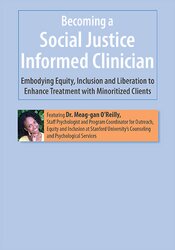Inscríbete hoy mismo en un curso en línea para disfrutar de un aprendizaje flexible y a tu propio ritmo, sin horarios fijos.


-
 Curso en líneaTanto si eres nuevo en la terapia Internal Family Systems IFS) como si llevas años practicando este modelo, inscríbete y descubre cómo perfeccionar y personalizar el modelo para adaptarlo a las necesidades únicas de tus clientes.Valor:1.140,66 *€275,99Tanto si eres nuevo en la terapia Internal Family Systems IFS) como si llevas años practicando este modelo, inscríbete y descubre cómo perfeccionar y personalizar el modelo para adaptarlo a las necesidades únicas de tus clientes.21 de octubre, 2020Tanto si eres nuevo en la terapia Internal Family Systems IFS) como si llevas años practicando este modelo, inscríbete y descubre cómo perfeccionar y personalizar el modelo para adaptarlo a las necesidades únicas de tus clientes.Valor:1.140,66 *€275,99
Curso en líneaTanto si eres nuevo en la terapia Internal Family Systems IFS) como si llevas años practicando este modelo, inscríbete y descubre cómo perfeccionar y personalizar el modelo para adaptarlo a las necesidades únicas de tus clientes.Valor:1.140,66 *€275,99Tanto si eres nuevo en la terapia Internal Family Systems IFS) como si llevas años practicando este modelo, inscríbete y descubre cómo perfeccionar y personalizar el modelo para adaptarlo a las necesidades únicas de tus clientes.21 de octubre, 2020Tanto si eres nuevo en la terapia Internal Family Systems IFS) como si llevas años practicando este modelo, inscríbete y descubre cómo perfeccionar y personalizar el modelo para adaptarlo a las necesidades únicas de tus clientes.Valor:1.140,66 *€275,99 -
 Curso en líneaGabor Maté va más allá de la instrucción y demuestra exactamente cómo utiliza la indagación compasiva para facilitar la sanación. Observa cómo aplica su método único con más de 10 miembros del público.Valor:689,89 *€275,99Gabor Maté va más allá de la instrucción y demuestra exactamente cómo utiliza la indagación compasiva para facilitar la sanación. Observa cómo aplica su método único con más de 10 miembros del público.15 de julio, 2022Gabor Maté va más allá de la instrucción y demuestra exactamente cómo utiliza la indagación compasiva para facilitar la sanación. Observa cómo aplica su método único con más de 10 miembros del público.Valor:689,89 *€275,99
Curso en líneaGabor Maté va más allá de la instrucción y demuestra exactamente cómo utiliza la indagación compasiva para facilitar la sanación. Observa cómo aplica su método único con más de 10 miembros del público.Valor:689,89 *€275,99Gabor Maté va más allá de la instrucción y demuestra exactamente cómo utiliza la indagación compasiva para facilitar la sanación. Observa cómo aplica su método único con más de 10 miembros del público.15 de julio, 2022Gabor Maté va más allá de la instrucción y demuestra exactamente cómo utiliza la indagación compasiva para facilitar la sanación. Observa cómo aplica su método único con más de 10 miembros del público.Valor:689,89 *€275,99 -
Hazte afiliado
Temas de actualidad:











